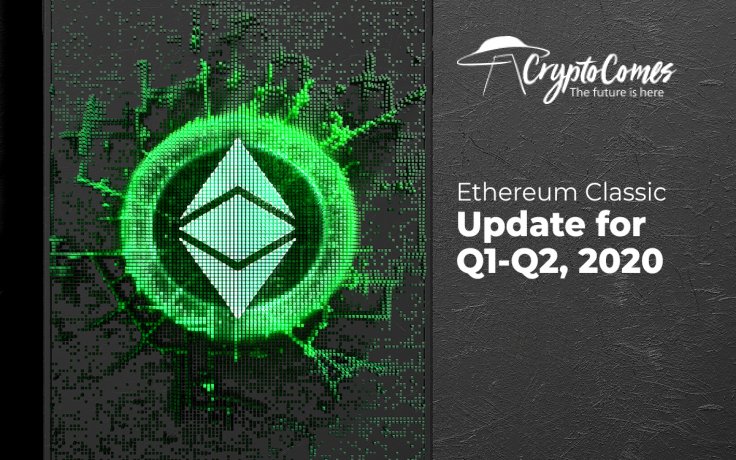The core development team of Ethereum Classic (ETC), the initial version of the Ethereum network protocol, shared a detailed dev update about the progress of the project in the first half of the turbulent year of 2020.
Hardforks and clients
Ethereum Classic (ETC) blockchain went through two hardfork upgrades in five months alone. The Agharta protocol update that occurred on January 12, 2020, at block 9,573,000, allowed the ETC blockchain to be interoperable with all Ethereum Constantinople features. A plethora of dApps and use cases became compatible for both chains.

Next, the ultimate cross-protocol compatibility was achieved by the Phoenix hardfork on May 31, 2020, at block 10,500,839. This upgrade has resulted in all Ethereum Istanbul features being supported by Ethereum Classic (ETC) blockchain. With this hardfork, testnet environments for ETH and ETC have also become compatible.
Moreover, the product team released new versions of Core-Geth client software that forked from Ethereum Foundation's Go Ethereum client. Phoenix hardfork is supported by Core-Geth v1.11.0 and further releases.
Finally, a new virtual machine, EVM-LLVM Alpha, allowed developers to build new programming languages to target the EVM.
Community and support
To enhance community building and information policy, the Ethereum Classic (ETC) team released a new version of the ETC Core Roadmap 2020. The new roadmap thoroughly covers the marketing and development aspects of ETC progress.
The ETC team released a newsletter and podcast. As the signaling newsletter that was introduced prior to the Phoenix hardfork, it delivers all-consumer messages to ETC users: hardfork updates, security alerts, consensus achievements.
The EVM61 podcast by ETC core devs is focused on ETC-related discussions and interviews. It strengthens the project understanding level of its customers. All episodes of the podcast are available on YouTube.




